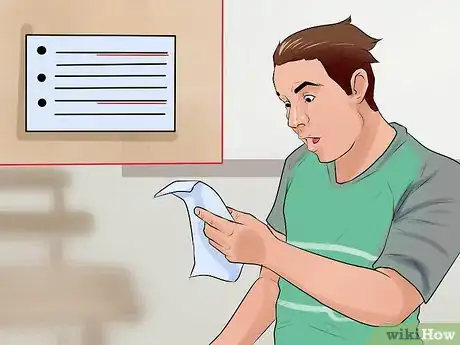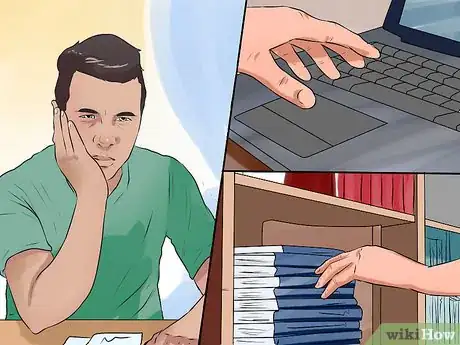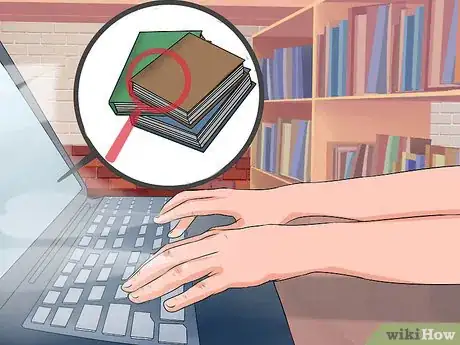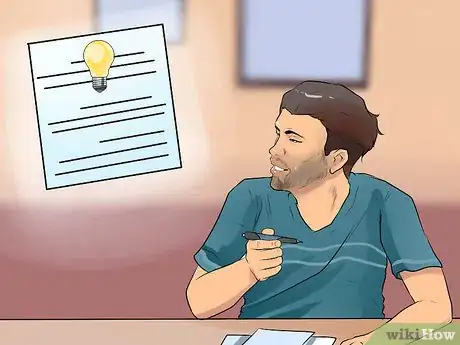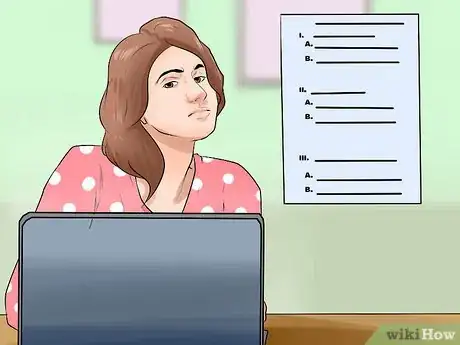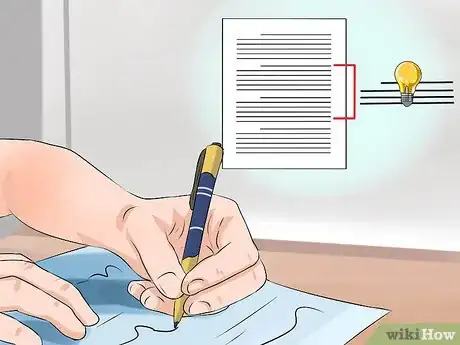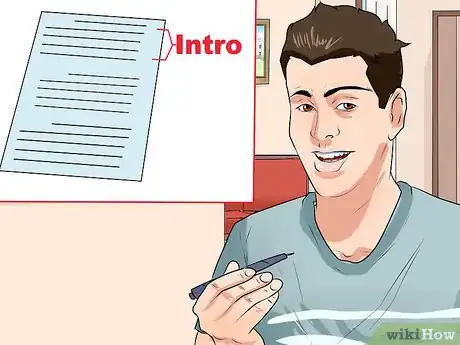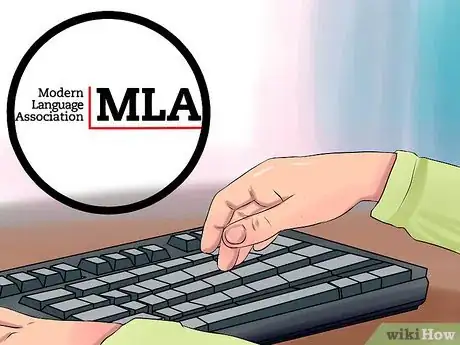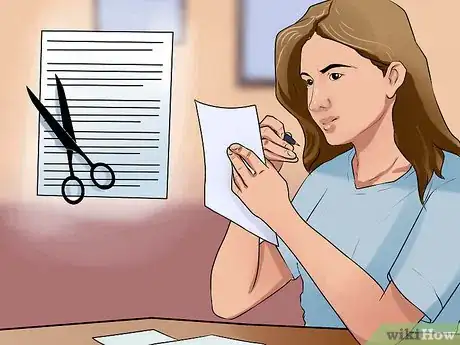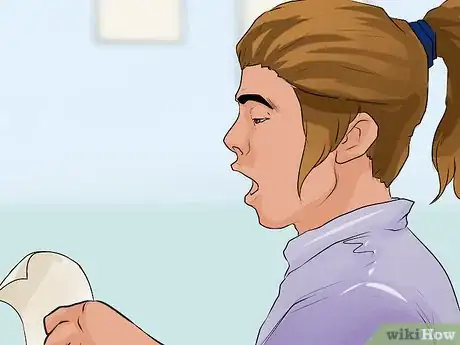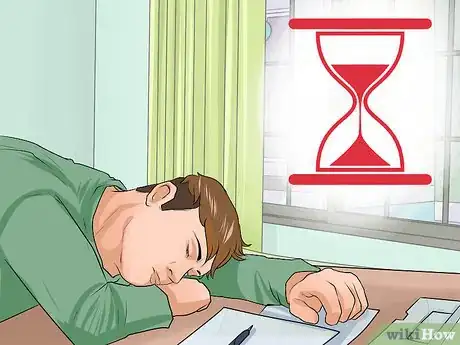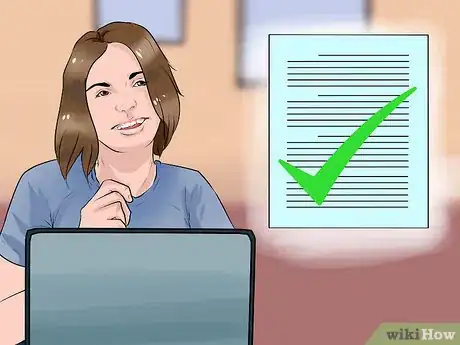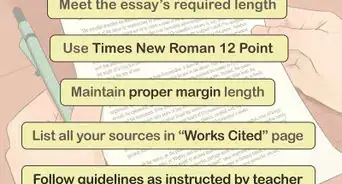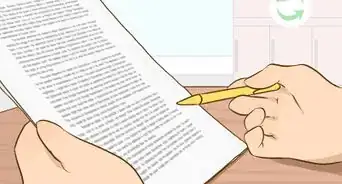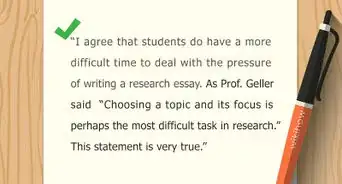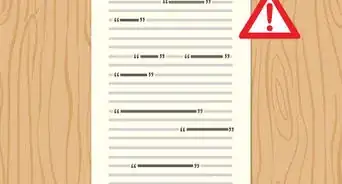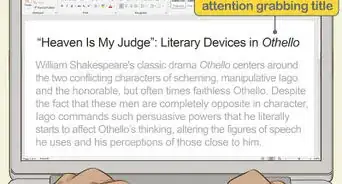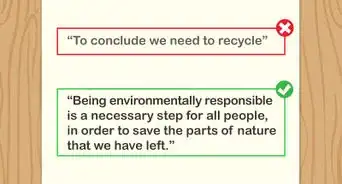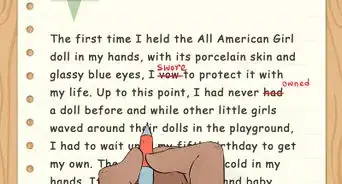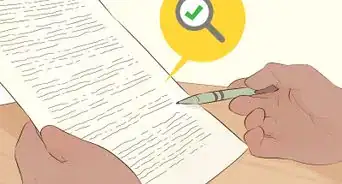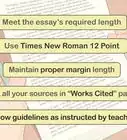This article was co-authored by Megan Morgan, PhD. Megan Morgan is a Graduate Program Academic Advisor in the School of Public & International Affairs at the University of Georgia. She earned her PhD in English from the University of Georgia in 2015.
There are 13 references cited in this article, which can be found at the bottom of the page.
This article has been viewed 53,511 times.
It happens to the best of us: you have a paper due tomorrow and you haven't even started. If this is the case for you, you should get started―right after reading this article. Writing is a process, and it is always best to give yourself ample time to complete your assignments. But as you know, sometimes life gets in the way of the best laid plans. Don't worry, you're not alone. And there are several steps you can take to get the best possible paper written in a short amount of time.
Steps
Getting Ready to Write
-
1Calm down. It might sound strange, but the first thing you need to do is relax a little bit. If you've just remembered this assignment, you're understandably pretty stressed out. But that's not a good state to be in when you're trying to write a paper. So take some deep breaths, and make a plan.[1]
- Deep breathing can help lower your blood pressure and your heart rate. This can physically help you feel more confident about tackling your problems.[2]
- Try doing a few basic yoga stretches or turning on some soothing music for a few minutes. These methods can help you feel more calm and in control.
-
2Read the assignment guidelines. If you have decided that it is best to try to complete the paper in a short amount of time, your first step is to make sure you have a clear understanding of the assignment. Make sure that you have a clear understanding of what you are supposed to write about, and how many sources you will need.[3]
- Look for keywords that will let you know the goal of the paper. For example, if you see the word "compare," you will know that you need to compare two ideas, texts, etc. Writing a paper about just one isn't an option in this case. However, if you see the word "analyze," you may be able to write about just one topic or text.[4]
- It may be tempting, but it's generally not a good idea to email your professor with questions about an essay due the next day. This lets your professor know that you didn't start well in advance and will make a bad impression. In addition, your professor may not check her email outside of business hours, so that email at 10:45PM is likely to go unanswered.
Advertisement -
3Research your topic. Once you know how many and what types of sources you need, you can begin researching. Since your time is limited, you'll need to search efficiently for the sources that will be most helpful to you. Try using your university library as your first step in researching. If possible, head to the library. If it is closed, use the webpage.
-
4Find the best sources. For a college paper, scholarly resources are your best bet. Use the online database to search for books relating to your topic. If possible, look for ones that have electronic versions available. You can also use the library webpage to find scholarly journals that will contain articles about your topic.
- Read efficiently. As you read your sources, don't try to absorb every single word. You will get bogged down. Instead, try reading for specific information that will help you write your paper. Scan, and take notes when you find something that is useful.[5]
- The introductions of books and abstracts of journal articles contain useful information that summarizes the overall argument of the text. Start with these.
-
5Pick a few pieces of good evidence. Because you're working on a tight deadline, your research will not be as complete as it would be if you had started working earlier. Pick a few key pieces of evidence that you will use to support your argument.[6] A good rule of thumb is to have at least one piece of evidence per "claim" in your paper. Generally, each body paragraph will put forward a claim that works to support your overall thesis. Thus, in a five-paragraph essay you would need at least three pieces of evidence, since you are likely to have three claims (one for each body paragraph).
- Look for quotations that are meaningful or impactful. Find a key fact or data point. Make sure that your evidence helps you answer your guiding question (the one that your thesis addresses).
- Make sure that your evidence fulfills the requirements. Some teachers may require a certain number of sources, a certain type (e.g., a scholarly journal or a recent book), or a certain balance of primary and secondary sources. Read the assignment carefully.[7]
Writing Your Paper
-
1Write your thesis statement. Your thesis (or argument) is the most important part of your paper. It should be 1-2 sentences long and directly answer the question posed in your assignment. A thesis should take a specific stance on the topic, and not just a vague summary.[8]
- To write a thesis statement, try starting by posing a question about your subject. Once you have answered the question, turn this into a declarative statement. For example: "Due to his persecution of the Native people, Christopher Columbus should not be honored as a hero by history."
- Make sure to place your thesis very early in your paper, usually in the introductory paragraph.
-
2Create an outline. An outline is key to making sure that your paper is organized and well-structured. Before you begin writing the actual paper, get an outline down on paper. Make sure it is thorough and detailed. Your outline should include your thesis statement, and indicate the subject for each of your body paragraphs.[9]
- Include references to your sources in your outline. This way, you will not have to hunt for your citations during the writing process.
Advertisement -
3Write the body of your paper. Each paragraph in your paper should directly relate to your thesis. If the paragraph does not in some way support your argument, it does not belong in your paper. Each body paragraph should include a topic sentence and specific examples that support that topic sentence.[10]
- Make sure to use transitions between each paragraph, so that your reader clearly understands when you are moving to a new topic.
- Some examples of transition words are: "similarly", "on the other hand", or "meanwhile".[11]
-
4Write your introduction. It may seem backward, but it's usually a good idea to write your introduction (but not your thesis) last. This way, you know exactly how your argument has developed throughout the essay and you can use the introduction to preview this development. Your introduction is important to get right because it lets your reader know your topic and what your stance on the matter is.[12]
- Make sure that your introduction serves as a road map for the rest of your paper. It should clearly indicate to your reader where you are headed.
- Try using an interesting anecdote or controversial quote to pique your reader's interest. Your introduction should be both informative and entertaining.
-
5Cite your sources. Citations give credit to ideas or statistics or words that are not wholly your own. You must give credit to any idea or concept that you did not create. You also need to cite statistics and direct facts. If you are not sure whether you need to cite a piece of information, go ahead and include a reference, just to be on the safe side.
- Your assignment guidelines should indicate which citation style you should follow. Some common forms are APA, MLA, and Chicago. If you don't know which one to use, ask your instructor or a classmate.
- Once you know which system to use, make sure to familiarize yourself with the rules for that specific style. Guides are available online.
Putting the Final Touches on Your Paper
-
1Edit carefully. Once you have a draft, you need to start the revision process. First, check your content. Make sure that your ideas are clearly explained and that you have used appropriate word choices in each paragraph. Ensure that your essay flows together in a logical order, rather than feeling jumbled or thrown together.
- Next, check for spelling and grammatical errors. You'll need to correct them, as mechanical errors will greatly detract from your reader's ability to trust you as an authority on your subject. Make sure that your spell check is also set to check grammar and style.[13]
-
2Read it out loud. Reading your paper out loud can help you catch errors that you may have missed by reading silently. When you hear the words spoken, you are more likely to notice any awkward phrasing. This is a great method to use when editing any paper.
-
3Get some rest. By now, you are probably pretty tired. It's a good idea to get some rest (sleep, if possible) before you give your paper a final look. Rest will help your brain recharge and your focus will be more clear. If you don't have time for a nap, take a few minutes to just rest your eyes. Your body and your mind need to recharge.
-
4Review the guidelines. After you've rested, it is time to give your paper one final look. Make sure that you have completed all of the required components. Now you can hand your paper in with confidence.
Turning the Paper in on a Different Date
-
1Review the late policy in the syllabus. The syllabus contains all of the important information for the course, including your professor's policy on late papers. If you professor accepts late work, it is possible that you could actually be better off handing in your paper a day or two late. For example, a 5% or 10% deduction on your grade might actually be better than the grade you could earn from handing in a hastily written or poorly researched paper.
-
2Contact your professor and ask for an extension. If you determine that it would be better to accept a late penalty, your next step is to reach out to your instructor. Send a polite, professional e-mail to your professor. Explain your circumstances, and be honest.
- Make your request as clear as possible. Try saying something such as: "Dear Professor Smith, My name is Bill Brown and I am a student in your Psych 101 class, which meets on Tuesdays at 1:00 p.m. I am writing to you about the paper due September 30 at 5:00 p.m. As I am looking over the assignment, I realize that I have not allowed myself enough time to properly complete the paper. It is important to me that I perform well in your class. I am requesting an extension of the due date. May I please turn in my paper on October 3 by 1:00? Thank you for your consideration."
-
3Be honest. Do not try to make up an excuse when asking for a deadline. Your professor is likely very intelligent, and she is also a human being capable of understanding problems. She will probably see through an excuse, but if you're honest, that will work in your favor. She will appreciate that you are being proactive and truthful.[14]
- Nearly all schools, colleges, and universities count lying to a professor as a type of academic dishonesty, which can come with hefty penalties or might even get you expelled. Do not lie to your teacher.
-
4Follow-up with your professor. When your professor responds to your e-mail, make sure to thank them for their reply--even if it wasn't what you want to hear. If your request for an extension was granted, make sure to note that when you turn in the paper.
- Include a brief note reminding the professor that she granted you an extension, so that she is not wondering why she has a stray paper stuck underneath her office door.
Community Q&A
-
QuestionWhat if you have trouble writing too much?
 Community AnswerStick to the facts, remove excess description and commentary, and keep the point of your paper clear.
Community AnswerStick to the facts, remove excess description and commentary, and keep the point of your paper clear. -
QuestionWhat if I have writer's block?
 Community AnswerInstead of writing the introduction, try to dive in somewhere in the middle of your paper. Start with something you already have ideas about, then go back to the beginning once you've got that part done.
Community AnswerInstead of writing the introduction, try to dive in somewhere in the middle of your paper. Start with something you already have ideas about, then go back to the beginning once you've got that part done.
References
- ↑ http://www.savethestudent.org/extra-guides/how-to-write-a-3000-word-essay-in-a-day.html
- ↑ http://www.mayoclinic.org/healthy-lifestyle/stress-management/in-depth/relaxation-technique/art-20045368
- ↑ http://writingcenter.unc.edu/handouts/understanding-assignments/
- ↑ http://writingcenter.unc.edu/handouts/understanding-assignments/
- ↑ http://www.dartmouth.edu/~acskills/success/reading.html
- ↑ http://writingcenter.unc.edu/handouts/reading-to-write/
- ↑ http://writingcenter.unc.edu/handouts/evidence/
- ↑ http://writingcenter.unc.edu/handouts/thesis-statements/
- ↑ http://writingcenter.waldenu.edu/318.htm
- ↑ https://owl.english.purdue.edu/owl/resource/724/02/
- ↑ http://www.laspositascollege.edu/raw/paragraphtransitions.php
- ↑ http://writingcenter.unc.edu/handouts/introductions/
- ↑ https://gustavus.edu/writingcenter/handoutdocs/editing_proofreading.php
- ↑ http://www.campustimes.org/2012/11/01/professors-prefer-honesty-sympathize-with-student-excuses/

